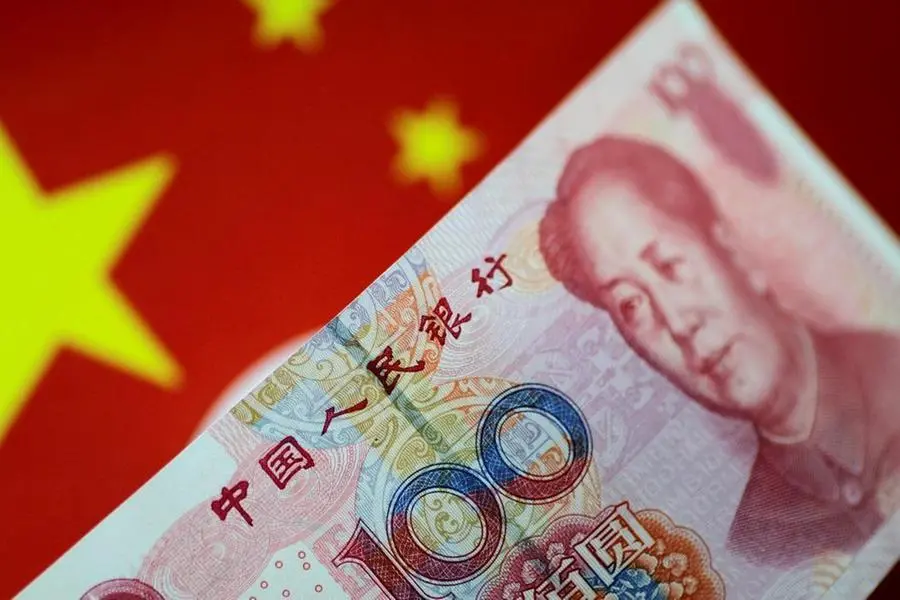PHOTO
The yield on China's popular Yu'Ebao money market fund has dropped to near record lows, reflecting lower interest rates and anaemic growth, despite efforts to stabilise the economy.
Analysts said the yield on the Tianhong Yu'Ebao , which is China's largest with more than 600 million investors, will likely fall further as the country's economy faces fresh headwinds.
"In the medium term, the yield could go down further if China fails to stabilise the economy," said Rocky Fan, economist at Guolian Securities.
U.S. President-elect Donald Trump's threat of tariffs on Chinese goods has weakened the Chinese yuan, limiting Beijing's room for further monetary easing in the short term.
China has rolled out stimulus measures since late September to bolster growth, including interest rate cuts and policies to support stock and property markets, and investors predict more after Trump vowed an extra 10% tariff on Chinese goods.
The seven-day, annualised yield of Tianhong Yu'Ebao , the $100 billion fund sold via popular payment app Alipay, has dropped to 1.294%, just above the record low hit during the COVID-19 pandemic in November, 2022.
Money market funds, which park most of their assets in bank deposits, have been hard hit by recent rounds of reductions in deposit rates, said Ivan Shi, head of research at fund consultancy Z-Ben Advisors, predicting their yields will fall.
"Fund managers may also be under pressure to lower their fees, now that lower yields have made the cost of holding money market funds relatively higher," Shi said.
Z-Ben says Yu'Ebao charges investors 0.63% of their holdings in the form of management, custodian and sales service fees.
Yu'Ebao was launched in 2013 by Tianhong Asset Management Co, a mutual fund company controlled by Ant Group. Its seven-day yield of less than 1.3% compares with a peak of around 7% a decade ago, and the downward trend could continue.
Wang Honglin, professor of the Shanghai Advanced Institute of Finance, suggested China should cut lending rates by around 150 basis points in the face of "unprecedented challenges facing Chinese exporters" as a trade war looms. ($1 = 7.2468 Chinese yuan renminbi)
(Reporting by Shanghai newsroom; Editing by Alexander Smith)





















